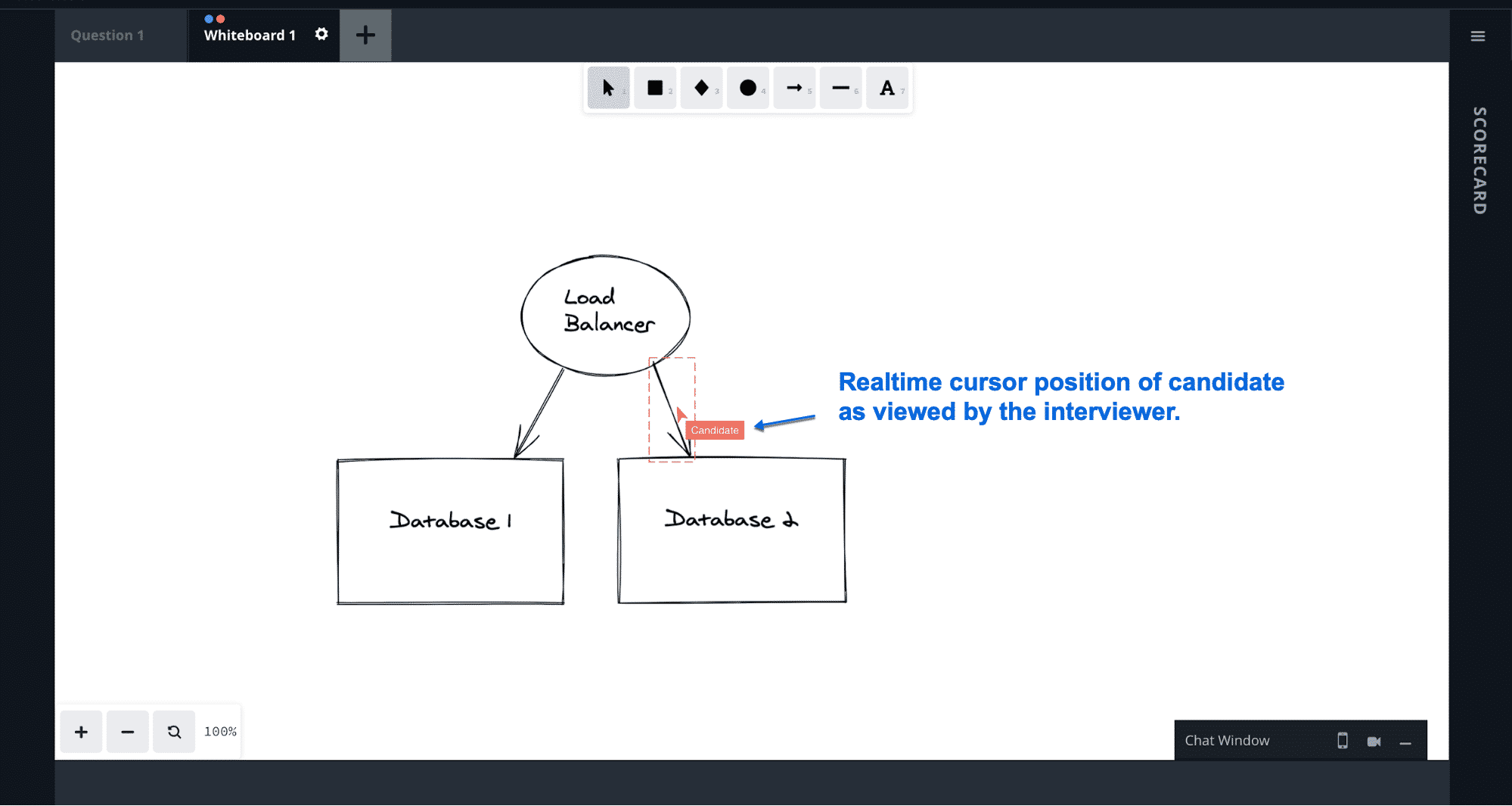
How To Ace Your Next Virtual Tech Interview
What is a virtual tech interview, and why can they feel so overwhelming?
Here’s the truth: We don’t know many pros who would say they enjoy the process of a virtual technical interview. These meetings put candidates under significant stress, and they can often be lengthy, protracted events.
If you are one of the many tech professionals looking for new jobs or projects but dread the interview process, don’t fear. We have remote tech interview tips for IT jobs that will help you gain confidence.
What Is a Virtual Technical Interview?
A virtual tech interview is simply a remote tech interview conducted on a video conferencing platform like Zoom. This could be a screen-to-screen Q&A, or it could be some sort of practical exercise along with a standard “tell me a little about yourself” interview.
Depending on what type of tech job or project you are interviewing for, you may even be faced with an interview where you are asked to map out code or work through a problem on a virtual whiteboard in front of everyone else on the video conference.
No matter what type of virtual IT interview you are facing, the thing to know is that they will remain prominent for the foreseeable future. Companies in all industries have embraced remote work and understand that remote culture allows them to expand their talent pool and hire people from anywhere in the country – or the world. Once you’re comfortable with that notion you can better prepare for your next virtual tech interview.
Types of Virtual Technical Interviews
The first step toward mastering the virtual technical interview is to understand what you could potentially be facing. There are many types of virtual tech interviews but five of the most common forms are:
- The initial phone screen.
- Panel interview.
- Virtual coding interview.
- Virtual problem-solving interview or whiteboard interview.
- Virtual case study interview.
Initial Phone Screen
The initial phone screen is typically with an IT recruiter who will screen for the basic job requirements and your ability to communicate and demonstrate emotional intelligence. Usually, these will be short, and you’ll get to hear a high-level overview of the job you’re interested in. Phone interviews are designed to move you through the initial phone screen quickly, with little time wasted. This is particularly true if you’re working with a tech recruiting firm that wants you to get to the meat of the interview process, where you can meet people from the hiring company as quickly as possible.
How to prepare:
- Practice concisely describing your job experiences and background.
- Review the job requirements and be prepared to discuss your relevant skills.
- Have two or three questions ready.
- Don’t be afraid to discuss salary, benefits, or perks. Some people shy away from these awkward discussions, but they are important for evaluating a job and determining whether a role or project is right for your career.

Panel Interview
Virtual panel interviews are quite similar to phone interviews in scope. If you are scheduled for this type of interview, you should expect a hiring manager and one or two other supporting team members to present you with questions. For the employer, these interviews follow the theory of “two (or more) heads are better than one,” meaning each interviewer will pick up on different weaknesses and strengths, which will provide them with a clearer picture of who each candidate is.
To stand out in this type of virtual interview, make sure you concisely but directly answer each question. Don’t get rattled if you don’t understand the question; just politely ask for clarification. You may find that each person on the panel asks questions differently or has a different speaking style. This can be challenging at first, but if you stay focused on each question, you won’t feel as overwhelmed.
Based on the role, be prepared for questions such as:
Cyber Security Engineer/Manager
- What tools do you use for security assessments?
- What experience do you have building/creating a Cyber Security Program?
- Tell me how you would develop, execute, & track the performance of security measures to protect corporate data and network infrastructure.
- What experience do you have planning/developing/implementing & updating a company’s Information Security strategy?
- What type of Vulnerability tools are you most familiar with?
Senior Network Engineer
- What is one of the most challenging projects/initiatives have you done around enterprise networks & engineering?
- When/where have you done router and switch configuration?
- Tell me about a Network Engineering problem you were faced with and how did you solve it? What actions did you take to ensure it didn’t happen again in the future?
Data Architect
- Can you elaborate on your experience with data modeling with SQL Server?
- Can you provide a specific example of how you’ve translated business requirements into technical specs? Such as creating data streams, integrations, transformations, databases, and data warehouses?
- Can you elaborate on your experience defining data flows? (Which parts of the organization generate data, which require data to function, how the data flows are managed, and how data changes in transition?)
- What is your experience building a data repository/warehouse? Provide an example and what was your involvement?
- Can you provide an example of a time where you worked with technical and non-technical stakeholders to understand their data requirements? What did you do once you had that information?
Virtual Coding Interview
A virtual coding interview is a type of working interview used to assess a developer candidate’s programming skills. During the interview, you’ll be asked technical questions or given a problem to solve. For example, if the interview is for a tech architect position, you could be called upon to verbally think through how you would design the solution and what tools you would use. If you’re a UX designer, you could be called upon to map out a branding prototype or perhaps some user stories.
Or you could just be asked basic coding questions such as:
- What is an abstract class?
- Describe inheritance in OOP?
- What is polymorphism?
- Why do you think MVC is so popular?
- Explain the difference between ASP.NET MVC and ASP.NET WebForms?
- Do you prefer Crystal for reporting or SSRS—or something else, and why?
Note that the coding questions will be directly related to the job you’re applying for. So, if the language or framework is listed in the job and you haven’t used it in a while, it’s a good idea to brush up on the basics. Given that programming is so complex, there probably isn’t a way to be prepared for everything the interviewer may ask. It’s common for developers on the job to Google algorithms or to use another tool for real-time assistance, so it’s okay to say that you probably don’t know the exact answer. However, you can talk about the related issues that you do know.

Virtual Problem-Solving or Whiteboard Interview
This type of interview includes live problem solving and/or “homework” style where you work out the problem on your own time then present a solution during the interview. The goal for these interviews is to give you a problem to solve that is similar to something you’d handle on the job. Some companies give you a pre-loaded test where you complete the challenge online. Then, during the interview, you run the application and talk through how you solved the problem.
Other times, you may be asked to work through a problem in real-time on a virtual whiteboard so that the hiring manager or panel can see how you work through real-world scenarios.
Be prepared for questions as you work. Some interviewers will just want to understand why you did something a certain way, or why you chose a specific approach. Others will ask questions specifically to see how you work under additional pressure.
This can be challenging in the moment because, in a real-world situation, you’d have other team members to bounce ideas off and tools to access. In a tech interview, you don’t have those resources.
That’s why it’s so important to practice problem-solving out loud and even in front of other people. Practice builds confidence and practicing different types of problems can help prepare you for the unexpected in an interview.
Virtual Case Study Interviews
In a virtual case study interview, the employer presents a real business scenario similar to a common issue that the company deals with. The candidate studies the problem, analyzes it (usually on the fly), and discusses the way they would handle it.
Typically, the goal of a case study interview is to figure out how you solve problems, how you think, and how you overcome challenges. It can measure:
- Logical and structured thinking and planning.
- Analytical troubleshooting and decision-making.
- Business acumen in the technology space.
- Communication and collaboration skills.
- Personality and your fit within the employer’s culture.
In a case study tech interview, it’s not about the answer you land on, but the process you use mentally to figure things out. Your goal should be to:
- Verbalize your process so that the hiring manager or team can see how you approach the problem.
- Ask clarifying questions, if need be, to be sure you understand the problem and have all the information you need. (Sometimes, they don’t provide it so they can see if you’re collaborative enough to even ask.)
- Offer multiple approaches to show your flexibility.
- Ask if the interviewers have questions along the way.
Some of the typical virtual case study scenarios in an IT setting could include:
- How to determine whether a company should invest in new technology, cobble together legacy applications, or perhaps outsource to a SaaS provider?
- Determining the best IT vendor to outsource a service to?
- How to prototype an application?
As a result, some IT recruiters would probably say that in a case study interview, the “right answer” doesn’t really matter. The correct answer is most often about your ability to analyze a big task, break it into component parts, and find the solution.
How to prepare:
- Deloitte has a good virtual case study interview tool. They say they don’t track your responses, and you can use it repeatedly to practice for free.
- This website also has a variety of sample case studies that you can review by industry. It’s geared more for management consultants, but some of the case studies apply to IT.
How To Prepare for A Virtual Technical Interview
Preparing for a tech interview can be stressful, but it is necessary if you want to make a great impression. If you haven’t interviewed in a while, there’s no harm in familiarizing yourself with the common video conferencing players, such as Zoom, Microsoft Teams, or Google Meet.
Most IT teams collaborate over Slack or Zoom but sitting on your couch next to your favorite movie poster may not show you as favorably as a clean office space in a more professional setting.
Your current team has likely already seen the pile of laundry and the three-year-old running in circles behind you. But first impressions still matter, so check your technology, your lighting, and dress appropriately for your interviews. We don’t recommend using your phone for these interviews, either. Have you ever tried sharing your screen from a phone? Not advisable. Here are a few more virtual interview tips for IT jobs to consider:
-
- Test your links far in advance of your virtual interview.
- Log in at least five minutes early.
- Remember to turn off all the notifications on your computer, especially if you end up sharing your screen. This includes iMessage, calendars, and Slack. Both Macs and Windows allow you to silence alerts.
- Be sure your laptop is charged, so you’re not distracted by trying to find an outlet.
- Seek out the quietest environment in your home, so you’re not thrown off by barking dogs, children, spouses, housemates, or any other distractions that occur regularly in your home. Lock your door if you need to and use headphones with a built-in mic to minimize background noise.
- Think about lighting. Avoid ambient backlighting from a window or a light fixture behind you. That halo can be very distracting and can make it hard to see your face. Position your light source just in front of your computer. Experiment with placement so you can look your best.
- Finally, think about what is behind you. Look at yourself from the perspective of an overly-judgmental IT recruiter and hide the weird knickknacks on your bookshelves.
Ask Questions to Finish Strong
You will also want to use this time to ask some questions for yourself so that you can determine whether the company and the job are a good fit for you. Candidates often forget that in a tech interview, it’s just as important for you to determine fit as it is for the interviewer to determine fit.
Asking great questions also helps you stand out as a candidate that has thought about the position and who thinks beyond the basic questions like, “tell me about a typical day.” When you are provided with the floor to ask your questions, consider asking things like:
- Why are you hiring for this role?
- What types of tech professionals succeed here?
- What is the biggest challenge facing the team I would potentially be joining?
- What is the management style of my direct supervisor?
- How would you describe the culture of the company?
- What are the expectations of the new hire for the first 30, 60 and 90 days?
- Is there anything we’ve discussed today that would prevent you from offering me the job?
Partner With a Tech Recruiting Firm
The best way for you to stand out in a virtual technical interview is to practice your responses in advance. That’s where a tech recruiting firm like Vernovis can help. We partner with our IT consultants to help them find engaging, challenging roles that further their careers. Our technical acumen and client experience can put you in the driver’s seat for your next remote tech interview. Start the conversation to find out how we can help.






